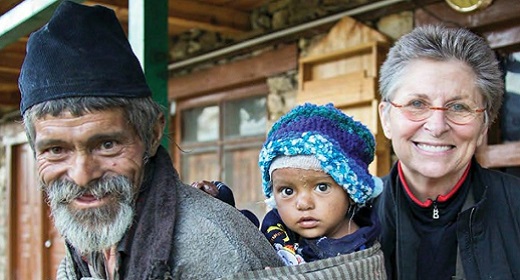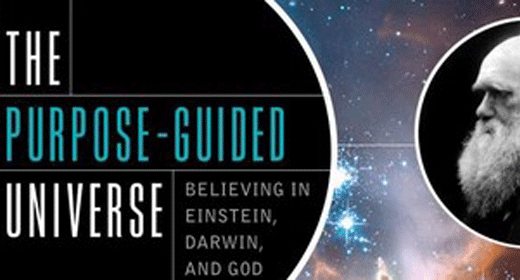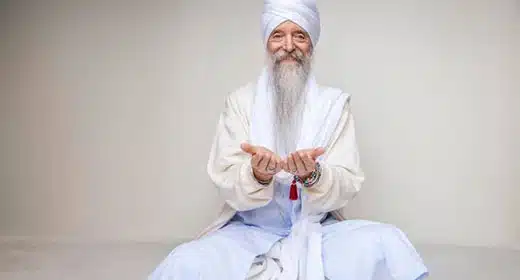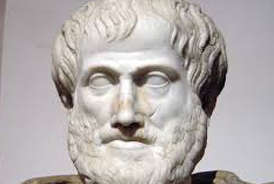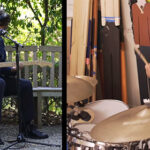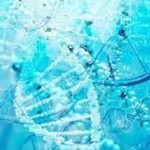“And the best good is apparent only to the good person; for vice perverts us and produces false views about the principles of actions.
Evidently, then, we cannot be prudent without being good.” —Aristotle, Ethics, VI (1144a35–b1)
by James V. Schall:
I. The corpus of Aristotle’s works, of course, is full of principles, first and otherwise. In one sense, to cite all the “principles,” even in book one of Aristotle’s Ethics, would simply be to copy out every line, principle on principle. But every time I read this book, I am struck by certain “principles” that Aristotle marks or underscores there, almost, it seems, in passing. Here, I do not propose a review or summary of this famous book one. Rather, I want to comment on several “principles” that struck me on my, what, hundredth reading of this book. Aristotle, the more familiar he is, the newer, the more insightful he seems to be.
Early in the first chapter, speaking of what method to use in understanding things of ethical action, Aristotle admonishes us: “We do not seek the same degree of exactness in all sorts of argument alike, any more than in the products of different crafts” (1094b14–15). Ethical things are shot through with contingency and human freedom. Moral actions are true “for the most part.” To expect more certitude of something than its subject matter permits is tantamount to not understanding what it is we deal with or talk about in our ordinary actions. We always confront actions of ours that might well have been “otherwise,” different from what they turned out to be.
Aristotle is aware that this variety in human actions can at first seem like no natural law or norm exists. All seems arbitrary. “Now, fine and just things, which political science examines, differ and vary so much as to seem to rest on convention only, not on nature.” With this, however, he is not saying that they are merely “conventional,” infinitely variable with no order. Aristotle has a happy way of stating the same position in another way: “For the educated person seeks exactness (certitude) in each area to the extent that the nature of the subject allows, for apparently it is just as mistaken to demand demonstrations from a rhetorician as to accept merely persuasive arguments from a mathematician” (1094b24–26). To expect mathematical exactitude of human action is not to understand either the subject matter of mathematics or human action.
In a large class of good students, it is always something of a provocative delight to have them read, at twenty years old, what Aristotle thinks of their understanding of political things. “This is why a youth is not a suitable student of political science; for he lacks experience of the actions in life, which are the subject and premises of our arguments. Moreover, since he tends to follow his feelings, his study will be futile and useless; for the end of political science is action, not knowledge” (1095a2–5).
Actually, most students usually have no difficulty in appreciating their own lack of “experience.” To know the definition of justice is not necessarily to be just. This distinction between definition and habit is what Aristotle means when he says that political science deals with action, not knowledge. Granted there is a knowledge component, usually called prudence, to all our actions, still, moral knowledge is not real until it is an operative factor in an actual human action deciding in the concrete whether this act is good or bad.
Aristotle makes his point about actual experience by reminding us that if we are brought up in good habits, we are already prepared to recognize the principles of good action, its source in our being. This aptitude for seeing correct principle is open to us because we do not have any major vices in our souls deflecting us from seeing clearly what an actual situation is. “That is why we need to have been brought up in fine habits if we are to be adequate students of fine and just things and of political questions generally. For we begin from the belief that something is true; if this is apparent enough to us, we can begin without also knowing why it is true. Someone who is well brought up has the beginnings, or can easily acquire them” (1095b55–9). This passage contains quite a profound insight into the importance of the moral virtues of youth and the dangers of their lack. The young are fortunate if they do good things before they are capable of understanding why things are worthy. For within the good action is contained its principle which they will come to see in its operation.
We begin, Aristotle says, with the belief that “something is true.” This is simply a first principle. We affirm that something exists, that it is there, of such and such a kind. We know this thing is not that thing. Much of modern epistemology causes us to doubt these basic certainties. We can go along living in the real world, however, with these basic certainties that some things are true. We have the “beginnings” implicit in the thing affirmed. Or given some reflective insight, we can see them, affirm them. What Aristotle hints at here is that the early practice of vice, of whatever sort, will itself deflect our minds from these “first beginnings.” We will use our minds not to know the truth, but to protect us from facing the meaning of our deviant actions relative to the truth.
Aristotle distinguishes between goods that are useful or pleasurable, and things good in themselves. Aristotle has no trouble acknowledging that useful things can be quite helpful to us. But a thing is useful because it takes us to something that is for its own sake. Likewise, all our actions have a proper pleasure connected with them. This is the great doctrine of Aristotle. But pleasure too is secondary; it accompanies and points to the proper good. It is not to be separated from the end of the action in which it properly exists. Some things we want and have for their own sakes.
“But what sorts of good may we take to be goods in their own right? Are they the goods that are pursued even on their own—for instance, prudence, seeing, some types of pleasures, and honors. For even if we also pursue these because of something else, we may, nonetheless, take them to be goods in their own right” (1096b18–20). Some things are in themselves simply good, like seeing. It is good that I see. Now it is true that seeing takes us to other things, to what to do about the things we see. So in that sense, seeing is a means to an end, to our end. But that does not mean that seeing itself ceases to be something good for its own sake.
Perhaps the most famous thing Aristotle said about politics is simply that man is “by nature a political animal.” His being “political” includes his rule of himself and his life in his family and community. He cannot fully be what he is simply by himself. The man who does not need community is either a “god or a beast,” as Aristotle put it in a famous phrase. “What we count as self-sufficient is not what suffices for a solitary person by himself, living an isolated life, but what suffices also for parents, children, wife, and, in general, for friends and fellow citizens, since a human being is a naturally political animal” (1097b9–12). The living together in an ordered polity makes many things possible that would not be possible in a solitary life. The common good means not some “good” that belongs to beings other than human, but the goods that can be brought forth from actual men living and acting together so that many goods come forth because we all do different yet related things.
But we do not live in a polity simply to be living there. We live there as the arena in which we find that final happiness, our end, available to us. “Happiness, then, is apparently something complete and self-sufficient, since it is the end of the things achievable by action” (1097b21–22). Men have potentialities that they cannot make actual unless they bring them forth with others. Not everything is “achievable by action,” since action itself points to what is beyond action. But this transcendence usually comes into view only when we have the leisure that comes from a life that is complete and self-sufficient in its kind.
What is it that this being we call man does that is different from other beings in the universe? “Then do the carpenter and the leather worker have their functions and actions, but a human being no function? Is he by nature without any function? Or just as eye, hand, foot, and, in general, every bodily part apparently has its function, may we likewise ascribe to a human being some function apart from all these?” (1097b30–34). Aristotle’s examples teach us. Obviously, every bodily “part” has its own proper function, the hand, the foot. Is man the only being in the universe that, as a whole, is “in vain,” clueless about himself, “function-less?”
Aristotle obviously does not think so.
Aristotle states his position clearly: “The remaining possibility, then, is some sort of life of action of the part of the soul that has reason. . . . We have found, then, that the human function is activity of the soul in accord with reason or requiring reason” (1098a7–8). All the elements that constitute the order of man are also directed to the activity of knowing. Aristotle says that we find the same mind used in two different ways. We can use it simply to know what is and we can use it to make something or to do something, an act in our own souls.
Aristotle returns to the beginning principle—namely, that we know something is true because we know that it is. “Nor should we make the same demand for an explanation in all cases. On the contrary, in some cases it is enough to prove rightly that something is true, without also explaining why it is true. This is so, for instance, with principles, where the fact that something is true is the first thing, that is to say, the principle” (1098b1–3). We begin with something than which nothing is clearer. We begin with the fact before us that something is. If we doubt this, we can make no further progress. We cut ourselves off from what is immediate to us.
The sweep of Aristotle’s mind, I think, can be seen in the following brief observation: “For all facts harmonize with a true account whereas the true soon clashes with a false one” (1098b11–12). This principle stands behind all philosophical argument. True things fit together by virtue of the basis in being that they all have in common. Sooner or later a false understanding will clash with reality as it exists in things. The mind is made precisely to know what is. It can err. But it always has a corrective, reality itself, which may take time and thought to see why something that is false was originally thought to be true.
Aristotle, as I mentioned, gives a surprising amount of attention to what is pleasant. He knows that pleasure can be a cause of deviation from the good if it is separated from its roots in its proper activity. The fact remains that what is right is also pleasant, almost as if what is pleasant is meant to reinforce what is right. “The life of those active people is also pleasant in itself. For being pleased is a condition of the soul, and hence is included in the activity of the soul. Furthermore each type of person finds pleasure in whatever he is called a lover of; a horse, for instant, pleases the horse-lover, a spectacle the lover of spectacles. Similarly, what is just pleases the lover of justice. In general what accords with virtue pleases the lover of virtue” (1099a7–11).
That we love horses, plays, and justice is simply fundamental to what we are, lovers of what is good. The man who does not delight in justice does not really love it. Thus, “someone who does not enjoy fine actions is not good; for no one would call a person just, for instance, if he did not enjoy doing just actions, or generous if he did not enjoy generous actions, and similarly for the other virtues” (1099a18–20). The very structure of our being is that we enjoy what is right about it.
Yet Aristotle can look frankly as the human condition. He knows that certain accidents of nature or family can make our lives difficult, even for the best of men. “For we do not altogether have the character of happiness if we look utterly repulsive or are ill-born, solitary, or childless; and we have it even less, presumably, if our children or friends are totally bad, or were good have died” (1099b3–6). Aristotle cannot be accused of not knowing the sad side of the human condition, the things that make life difficult even if no vice or moral deformity is present.
Aristotle normally deals with happiness as a result of our living virtuously. Happiness is the activity of the virtues as they are lived in a complete life. But sometimes Aristotle shows insight into the later issues that were brought up by revelation. If the gods wanted us to be happy, why did they not provide it for us? “If the gods give any gift at all to human beings, it is reasonable for them to give us happiness more than any other human good, insofar as it is the best of human goods” (1099b4–5). It is the contention of revelation both that man must receive the highest good as a gift and that he must live out and act virtuously. He cannot save himself alone, but neither can he simply do nothing with what he has been given
Aristotle is clear that men can do certain things. “For we took the goal of political science to be the best good; and most of its attention is devoted to the character of the citizens, to make them good persons who do fine actions” (1099b30–32). Human life is not “in vain.” Politics is something that is left for man to do. He is to do “fine actions.” Yet, though man is by nature a political animal, he is more than that. Politics is not the highest science, only the highest of the practical sciences. These latter are ordered to what is no longer “practical,” but simply to what is.
Aristotle brings up one of the most famous of all questions: “Then should we count no human being happy during his lifetime, but follow Solon’s advice to wait to see the end?” (1100a1–2). Aristotle in some sense, like Socrates, thinks the soul is immortal. But here he looks at the mortal life as mortal. Misfortune and change of virtue can happen to the end. Those who are still alive can look back on a man’s life once he has died. But we look at it under the aspect of its happiness while in this world.
Socrates had said that nothing evil can happen to a good man. He knew that doing wrong was evil. He did not know that death was evil. It was better to choose death than to do evil. Aristotle puts the same issue this way: “And since it is activities that control life, as we said, no blessed person could ever become miserable, since he will never do hateful and base actions. For a truly good and prudent person, we suppose, will bear strokes of fortune suitably, and from his resources at any time will do the finest actions . . .” (1100b34–01a3). Aristotle does not deny that adversity can strike the good man. He just does not think it will ruin him.
Who, then, is the happy human being? “Why not say that the happy person is one whose activities accord with complete virtue, with an adequate supply of external goods, not for just any time but for a complete life?” (1101a15–16). The complete human life, of course, includes dying well. There is an inner-worldly happiness that men were to seek to life in their time in this world. In principle, their soul reaches to more than this life precisely because it is designed to be and know all things. But the life of the mortal is a passing thing, evidently ordered to what is beyond the political life.
We are to honor, to praise what is worthy. Yet there is something beyond praise. Again in this reflection Aristotle touches on something related to the revelational tradition.
For the best things there is no praise, but something greater and better. And indeed this is how it appears. For the gods and the most godlike of men are not praised, but congratulated for their blessedness and happiness. The same is true of goods, for we never praise happiness, as we praise justice, but we count it blessed, is something better and more godlike than anything that is praised (1101b22–28).
That is a remarkable passage. We do not praise happiness as we praise justice because it is something more “godlike.” Whatever it is that caused such happiness to be the end of man must be counted blessed just to have it. “For praise is given to virtue, since it makes us do fine actions; but celebrations are for achievements, either of body or of soul.” (1101b33–35). In the end, all is festivity, celebration.
In the end, we examine “human virtue,” because this is what we are given to pursue and grasp. “The virtue we must examine is human virtue, since we are also seeking the human good and human happiness. By human virtue we mean the virtue of the soul, not of the body, since we also say that happiness is an activity of the soul . . .” (1102a14–19).
If our happiness is also the activity of the soul, both in its rule of our bodies and in our rule of simply knowing things for their own sakes, we must conclude that we are not “in vain.” The firm belief that something is true roots our souls in a reality in which all facts fit together. We should not seek of a science more certitude than the science itself warrants. But we should seek the certitude of what is indeed available to us. Aristotelian principles are grounded in being and mind, in our being, in our mind.




